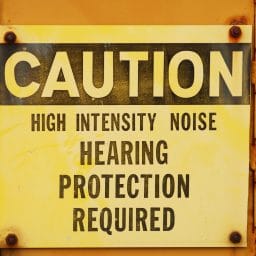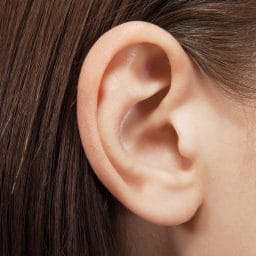When Should You Get A Hearing Test

Approximately 15% of American adults report some trouble hearing. You may sometimes wonder how much hearing loss is too much and when you should seek out a hearing test. Nearly 28.8 million adults could benefit from the use of hearing aids, and hearing aids are a helpful tool in improving the overall quality of life…
Three Ways Hearing Loss Can Increase Your Anxiety

Studies have shown that untreated hearing loss is linked to higher rates of anxiety. Let’s look at a few of the reasons this happens, as well as what you can do to improve your mental health. Worries About Your Hearing Health There can be a lot of questions and worries when you start to experience…
Common Misconceptions About Hearing Loss

Treating hearing loss is an integral part of staying healthy and connected to your family and your community. Unfortunately, many people with hearing loss delay or completely avoid getting treatment. While many factors play a part in this, one reason people don’t get the treatment they need is because of common misconceptions they believe about…
How Should I Prepare My Child for Ear Tube Surgery?

If your child has chronic, recurrent ear infections, an ear, nose and throat (ENT) physician may recommend ear tubes, also known as tympanostomy tubes (TT). According to one 2022 article published in the National Library of Medicine, “Almost 7% of all children will have a least one set of TT by 3 years of age,…
The Link Between Hearing Loss & an Overwhelmed Brain

The new year will bring a lot of gatherings, and if you have trouble hearing during these events, it could mean your brain is overwhelmed with sounds. A very recent study, published in December 2022, uncovered this link among mice, and the findings could be translated to humans. About the Study The study, entitled “Decreased…
What is Unilateral Hearing Loss?

What is Single Sided Deafness? Sometimes referred to as unilateral hearing loss, single sided deafness is a condition in which an individual experiences hearing loss in only one ear but can hear normally out of the other ear. While the majority of patients with a hearing impairment suffer from bilateral (two-sided) hearing loss, SSD is…
What is Sudden Hearing Loss?

For most people who experience hearing loss, the condition comes on gradually over a period of years. In rare cases, an abrupt loss of hearing occurs with little or no warning. This condition is known as sudden sensorineural hearing loss (SSHL). What is Sudden Deafness? Sudden deafness is defined as a hearing reduction of 30…
What is Noise Induced Hearing Loss?

Noise induced hearing loss is the second most common form of hearing loss (ranking behind presbycusis, hearing loss related to normal aging), and is the most preventable type. How Can Sounds Hurt Your Ears? Background sound is a constant in our busy lives. Normally, background noises are at safe levels that won’t impact our hearing….
Treating Hearing Loss with Surgery

There are two main types of hearing loss: conductive and sensorineural. Conductive hearing loss is caused by problems in the middle ear and outer ear, while sensorineural hearing loss is the result of inner ear problems. Sensorineural hearing loss is often referred to as nerve deafness and is usually treatable only with hearing aids. Conductive…
Communication Disorders in Older Adults
During May Is Better Hearing & Speech Month, Midwest ENT Centre is spotlighting the importance of early detection and treatment for communication disorders in older Americans. Roughly 40 million Americans experience these disorders. Speech/language or swallowing disorders may result from medical conditions, such as oral cancer, stroke, Parkinson’s, or traumatic brain injury. Adults may also…
